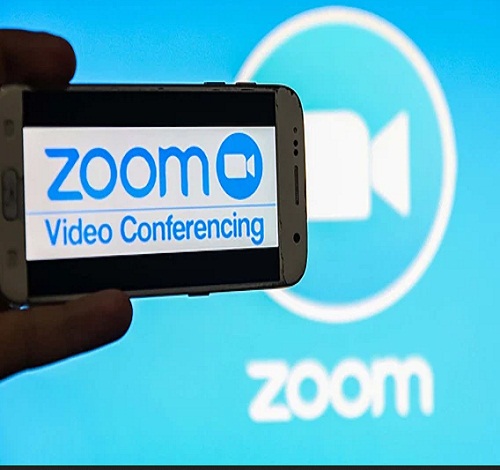Zoom is the social-networking sensation of the year — and it’s also probably safe from getting taken over by Facebook anytime soon.
The video-conferencing app has quickly become ubiquitous during the coronavirus lockdown, with its user base surging by 20-fold to more than 200 million since the pandemic began. On top of business meetings and university lectures, people have been logging on for Passover seders, trivia nights and karaoke competitions.
But if Facebook’s billionaire boss wanted to acquire Zoom, he’d have a tough time, regulatory experts say. That’s partly because Facebook is embroiled in an antitrust investigation with the Federal Trade Commission, which threatens to unwind Zuckerberg’s earlier acquisitions of Instagram and WhatsApp.
Under normal conditions, an acquisition of Zoom might be less problematic than a deal to buy, say, Snapchat, says Seth Bloom, formerly general counsel for the US Senate Antitrust Subcommittee. Facebook could make the case that it doesn’t operate in Zoom’s primary niche of providing video meetings for businesses, he notes.
“Facebook probably has a zero-percent market share in conferencing, so a deal is possible,” says Bloom. “Facebook could argue that Zoom is so important in this corona economy that you need a company as strong as Facebook to handle conference calls.”
Late last week, Facebook unveiled a new video-conferencing feature for its Messenger app, called Messenger Rooms. Unlike Zoom, which lets users create calendars and send out invitations for meetings, Rooms has a more spur-of-the-moment feel, allowing users to assemble ad hoc chats with groups of friends in their networks.
That distinction could be crucial in any search for deal approval. When Facebook acquired Instagram in 2012, it argued the $1 billion deal should be cleared partly because Facebook was in the social-networking space, not the photo-sharing space, and didn’t pose an antitrust problem.
Nevertheless, as The Post reported in February, the FTC also uncovered a document written by a high-ranking Facebook executive who said that the company was buying Instagram to eliminate a potential competitor. Facebook has declined to comment on the reported document.
Now, the FTC is investigating past Facebook mergers, including Instagram, for anticompetitive behavior, even as Sen. Elizabeth Warren and other officeholders publicly call for a breakup of the company.
“I think Facebook buying Zoom would be a tough sell in this environment,” Bloom said. “Zuck’s political advisers might tell him this is not a great time to try this.”
Indeed, it’s entirely possible that Zoom isn’t on Zuckerberg’s shopping list for other reasons, according to tech insiders.
Not least among them has been Zoom’s hornet’s nest of privacy problems, which have included such allegations as corporate spying and creepy eavesdropping on kindergarten classes.
“Not only does Facebook not need to buy Zoom, it would be really dumb,” tech analyst Shelly Palmer told The Post. “The only reason they would buy it is to kill it. Their infrastructure dwarfs Zoom’s, and it’s 1,000 times more sophisticated.”
Palmer said that Facebook’s Messenger Room feature looks like a response to a temporary need that it sees from its cooped-up users — pointing out that video conferencing for up to eight people on Facebook Messenger has been available for years.
“We’ll use the word ‘Zoom’ the way we use ‘Kleenex’ because of the way it has captured our hearts,” Palmer said. “From a technological standpoint, I’m not so sure.”
Wedbush Securities analyst Dan Ives added that Zoom’s $46 billion market cap might not make Facebook’s investors too eager to take the plunge, especially in an area where Facebook doesn’t know if it wants to do business.
“For now, this is an exploration to see how successfully they can build out a presence,” Ives said. “I think if they feel that there’s significant customer adoption, they might attempt to dive into the deep end and explore an acquisition.”
Source: Nypost










